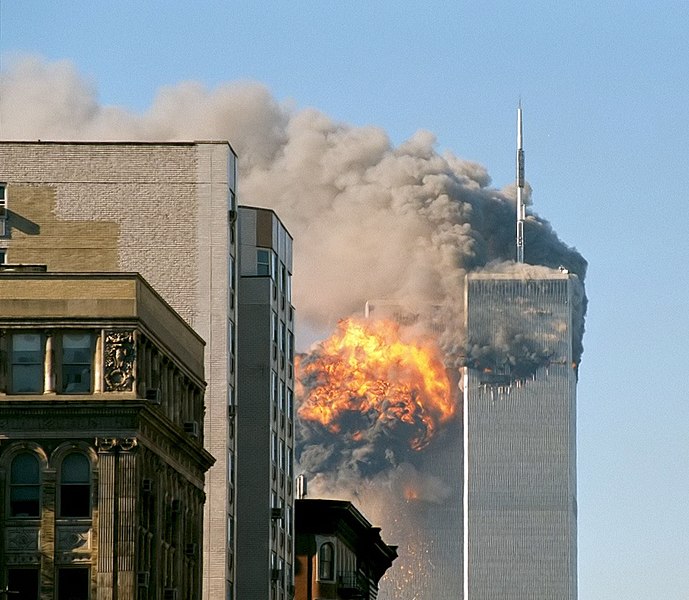SEPTEMBER 11, 2021 – On 9/11 I shared in the universal reaction to horror wrought by extreme misanthropes.
Then came the “War on Terror”—a game for which we set the rules: 1. The game has no end; 2. No matter how many points we score, the other side wins by scoring once; and 3. The players on the other side will commit suicide to score.
As is so often the case, memories of one crisis are displaced by another crisis, real or imagined. We’ve faced a tsunami of crises since 9/11—the Great Recession, broken infrastructure, police brutality, extreme weather, the rise authoritarianism, and of course, the pandemic. On the radio recently, listeners “too young to remember 9/11” were invited to call in and give their perspectives. I imagined the oldest Boomers facing the same question in 1961 regarding the attack on Pearl Harbor.
I’m among the people who remember details of 9/11. Three things stand out for me.
First was a discussion I heard on public radio on 9/10—several academics talking about the nature of empire. The conversation mentioned the Romans, the British, the Russians, the Japanese, and . . . the U.S. One speaker underscored the paradox of imperial power. In the life of nearly every empire, he noted, power becomes vulnerability.
I thought immediately of the old pines at the cabin; the tallest, mightiest trees of the forest that rise above the fray, as it were, like arboreal beacons, visible across the lake. Yet in their majesty resides danger: when a severe thunderstorm moves in, imperial pines are like lightning rods, targets for Zeus.
My second specific memory about 9/11 was an encounter with a brother-in-law. On the weekend immediately following the attacks, I was alone at our cabin, working on a project. My brother-in-law, who has a cabin a way from ours, had followed a running course down our drive. He stopped to talk about the awful attack. What I remember about the conversation was his statement, “If I could, I’d join up and fight.” His reaction anticipated my third memory . . .
. . . an argument I had with my dad two years later—after the invasion of Iraq. Dad was a hawk, whose worldview had been rigidly cast by Hitler. “Appease bad people, and they’ll take over,” summed up Dad’s views on foreign policy. Invariably, he’d point to the Chamberlain’s policy vis-à-vis the Devil Incarnate.
Dad’s take was that the 9/11 terrorists, Al Qaeda, Taliban, Baathists, and Hezbollah (ISIS hadn’t yet hatched) were all part of one big band of misfits, who needed to be crushed in the old-fashioned way that his generation had defeated Hitler and Hirohito. The invasion of Iraq, Dad argued angrily, would teach all bad guys a lesson.
Dad reacted with apoplexy to my argument that a monolithic, militaristic approach to national security—coupled with ignorance of the Middle East (all apart from the Arab vs. Israel divide)—would worsen matters. In blowing all gaskets, Dad shouted, “We had to do something!”
And look at us now.
(Remember to subscribe to this blog and receive notifications of new posts by email.)
© 2021 by Eric Nilsson
